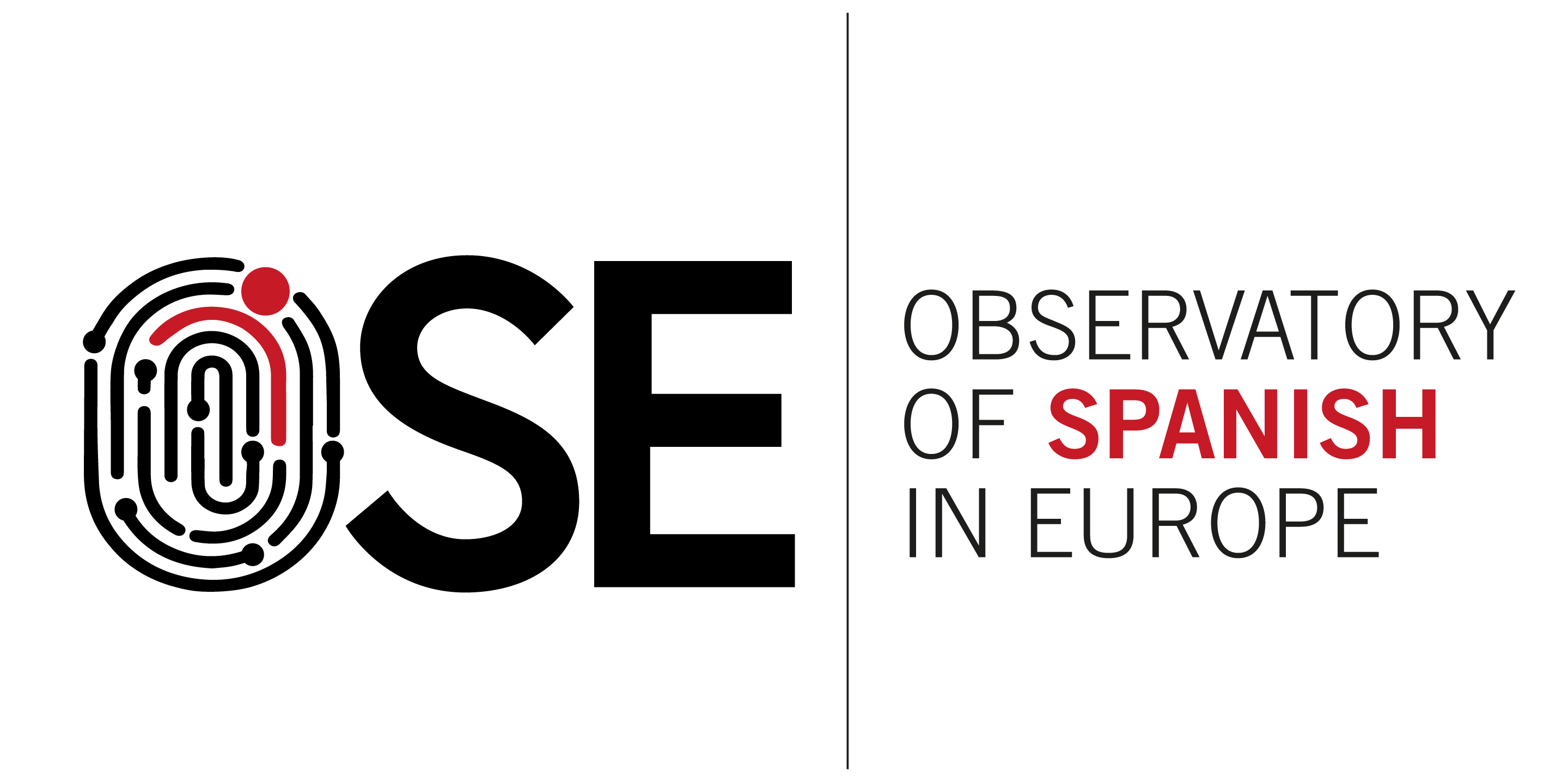Projects
One of the goals of the Observatory is to produce knowledge that may be useful both for other researchers and for civil society, in line with Heidelberg Center for Ibero-American Studies (HCIAS). You can access the projects the OSE has collaborated with here.
Award
2024 Premio de Hispanismo Internacional Fundación Duques de Soria awarded to the network project El Español en Europa and the Heidelberg Research Center Observatory of Spanish in Europe
Survey: Prácticas comunicativas y mantenimiento del español como lengua de herencia en Europa
The Observatory of Spanish in Europe, in collaboration with the Didactext research group at the Universidad Complutense de Madrid and with the support of the Global Observatory of Spanish, focuses on analyzing the use and intergenerational transmission of Spanish in European migration contexts.
The project aims to describe family language practices, the factors that favor or hinder the continuity of Spanish, and the strategies for maintaining the language among minors from Spanish-speaking families residing in Europe. To this end, a survey has been designed for people from Spanish-speaking countries who reside in a European country and have minor children.
The data obtained will make it possible to characterize the diversity of existing sociolinguistic situations, identify patterns of Spanish use in the domestic and educational spheres, and provide empirical evidence for the study of Spanish as a heritage language in Europe.
Spanish in Europe: Demography of the speakers of a language
The interdisciplinary research project Spanish in Europe analyses the Spanish language in the old continent. It aims to provide a quantitative and qualitative description of the linguistic and cultural geography of Spanish and its speakers with a specific focus on the dynamics of migration, demography, and education. The demolinguistic methods developed for this purpose enable us to understand the process of internationalisation of the Spanish language and is simultaneously useful as an empirical basis for language and culture planning.
The published volumes of the project can be downloaded from Centro Virtual Cervantes.

Lexical Variation of Spanish in the World: VARILEX XXV
The project Varilex-XXV, developed by Hiroto Ueda (Tokyo University) and Francisco Moreno-Fernández (OSE, Heidelberg University), aims to gain knowledge about the status of Spanish lexic and its dialectal variation. To this end, the project has created a database that contains more than 10,000 linguistic data from 61 Spanish-speaking cities on several continents and classified by country of origin. The data were collected through questionnaires regarding 981 lexical, phraseological, and syntactic aspects of contemporary Spanish that is spoken daily in urban environments. In its newest edition, Varilex XXV includes information on Spanish-speakers located in countries in which Spanish is not an official language, including European countries. Thus, it can reflect the usage of Spanish in the context of migrations.
Completed doctoral theses
Charlotte Blattner, Charlotte Blattner (2021-2026), summa cum laude. Fellow of the German Academic Scholarship Foundation/Studienstiftung des Deutschen Volkes and Landesgraduiertenförderung, “The role of the family as the primary centre of socialization in the intergeneration transmission of Spanish as a heritage language in Germany”, Faculty of ModLang, first supervisor Prof. Dr. Óscar Loureda, second supervisor Prof. Dr. Francisco Moreno-Fernández.
Ana Gómez Pavón-Durán, previously fellow of the German Academic Exchange Service DAAD, now fellow of the Landesgraduiertenförderung LGF, start of project October 2021: “Language socialization and Spanish in migration contexts”, Faculty of ModLang, first supervisor Prof. Dr. Óscar Loureda. Cotutelle Heidelberg University – Universitat de València, Spain, Prof. Dr. Mercedes Quilis Merín.
Alba Segura Lores, (2021-2025). Fellow of the German Academic Exchange Service DAAD, “Estudio de la variación ausencia-presencia del pronombre personal sujeto en el español hablado en los corpus PRESEEA-Málaga”, Faculty of ModLang, first supervisor Prof. Dr. Francisco Moreno-Fernández. Cotutelle Heidelberg University – Universidad de Málaga, Spain, Prof. Dr. Matilde Vida Castro and Prof. Dr. Francisco Diaz Montesinos.
Doctoral thesis in progress
Jana Weckesser, fellow of the German Academic Scholarship Foundation/Studienstiftung des Deutschen Volkes, start of project November 2024: “Ethnolinguistic Identity and Sociolinguistic Integration in Migratory Contexts: A Comparative Study of German and Romanian Communities in Spain”, Faculty of ModLang, first supervisor Prof. Dr. Francisco Moreno-Fernández.
Scholarships
- DAAD scholarship Alba Segura 2024-2025
- DAAD fellowship Ana Gómez Pavón, 2021-2023
- LGF scholarship Ana Gómez Pavón 2023-2025
- LGF scholarship Charlotte Blattner 2022-2023
- Studienstiftung des Deutschen Volkes scholarship Charlotte Blattner 2023-2025
- Heidelberg University Marsilius Young Fellowship Program Dr. Héctor Álvarez Mella, 2023-2024
- Heidelberg University Marsilius Young Fellowship Program Dr. Pilar Valero Fernández, 2025-2026
- Baden Württemberg “Forschungswerkstatt – Deine Idee für Morgen” scholarship Charlotte Blattner 2026-2027
Outreach – scientific events
co-organized by the Heidelberg Observatory of Spanish in Europe (selection)
- December 2024, network meeting and symposium “El Español en Europa”, La Rioja, Spain
- December 2024, transfer of knowledge workshop “Policy Briefs”, Heidelberg (funded by FoF3)
- 2023, workshop El Español en la Europa del Este, Krakow (funded by Visegrad Funds)
- 2024, workshop El Español en la Europa del Este, Prague (funded by Visegrad Funds)


